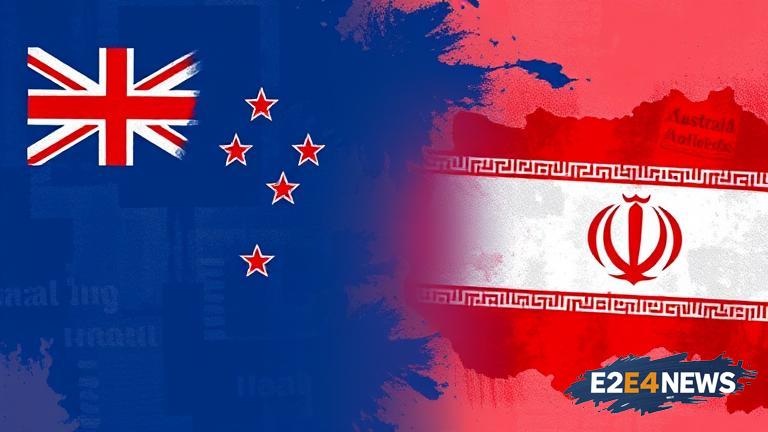In a bold move to condemn and address the rising tide of antisemitic attacks, Australia has taken the significant step of expelling an Iranian envoy from the country. This decision comes as part of a broader international effort to combat hate speech and violent acts against Jewish communities worldwide. The expulsion is seen as a strong statement by the Australian government, underscoring its commitment to protecting the rights and safety of all its citizens, including those of Jewish descent. The move has been welcomed by Jewish communities and organizations globally, who have been vocal about the need for more decisive action against antisemitism. Australia’s action is particularly noteworthy given its historical stance on promoting multiculturalism and tolerance. The country has long been a beacon of diversity and inclusivity, making this move a testament to its unwavering dedication to these values. The Iranian government has been criticized internationally for its stance on Israel and its perceived support for groups that perpetuate antisemitic ideologies. This criticism has been compounded by reports of increasing antisemitic attacks in various parts of the world, which many attribute to the escalation of rhetoric and actions by certain nations, including Iran. The Australian government’s decision to expel the Iranian envoy is a clear signal that such behavior will not be tolerated. It also reflects a growing consensus among Western nations to take a firmer stance against countries that fail to condemn or actively promote antisemitism. The diplomatic fallout from this decision is expected to be significant, with potential implications for trade and political relations between Australia and Iran. Despite these potential consequences, Australia’s move has been praised for its principled stance, with many seeing it as a necessary step to uphold human rights and dignity. The international community is watching closely, as this action could set a precedent for other countries to follow in addressing similar issues. The United Nations and other global bodies have long grappled with the challenge of antisemitism, and Australia’s decision may prompt a renewed discussion on more effective strategies to combat this form of hatred. In the wake of this expulsion, there are calls for increased dialogue and cooperation among nations to develop a unified response to antisemitism. This includes not only diplomatic actions but also educational initiatives and community programs aimed at promoting understanding and tolerance. The role of social media in spreading hate speech has also come under scrutiny, with many advocating for tech companies to do more to monitor and remove antisemitic content. As the situation continues to unfold, one thing is clear: the fight against antisemitism requires a concerted and sustained effort from governments, civil society, and individuals around the world. Australia’s decision to expel the Iranian envoy is a significant step in this direction, marking a moment of solidarity with Jewish communities and a commitment to the values of respect, inclusivity, and human rights. The coming weeks and months will be crucial in determining the long-term impact of this decision, both in terms of Australia’s relations with Iran and the broader global effort to combat antisemitism. For now, the move is seen as a powerful statement of intent, one that underscores the importance of standing against hate and discrimination in all its forms. The Australian government has made it clear that it will not stand idly by in the face of rising antisemitism, and this resolve is likely to resonate with like-minded nations and communities worldwide. In conclusion, the expulsion of the Iranian envoy by Australia is a landmark moment in the global struggle against antisemitism, reflecting a deep commitment to the principles of tolerance, diversity, and human dignity.
